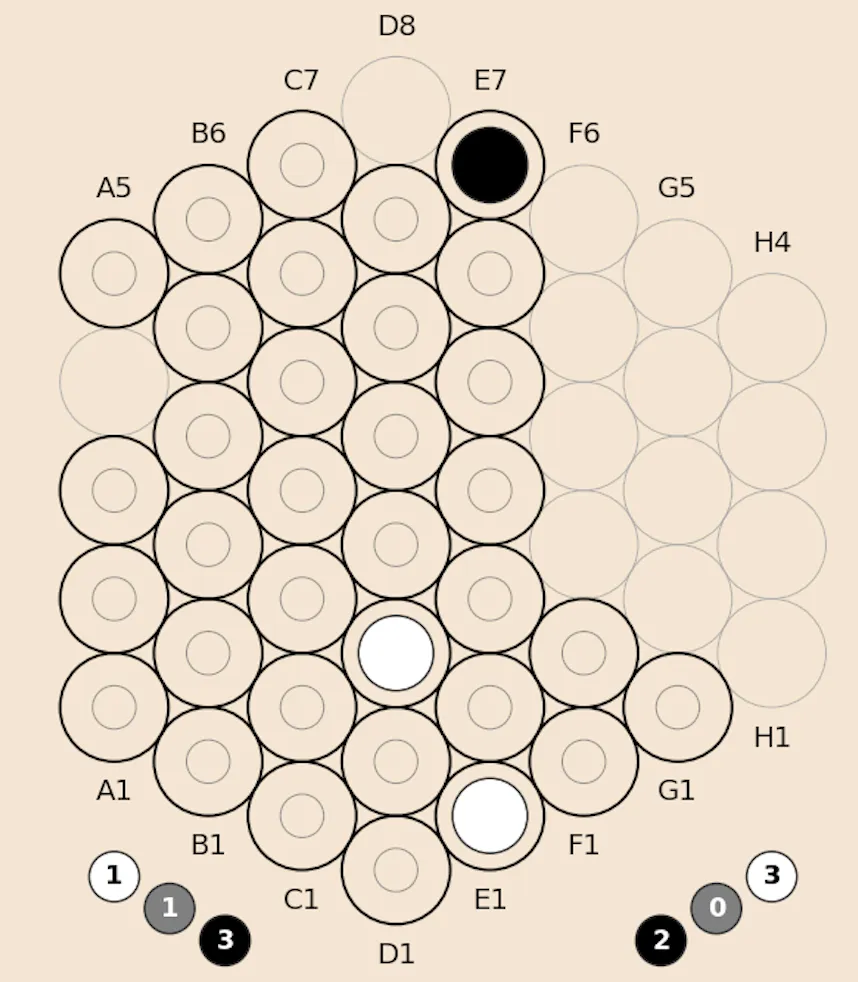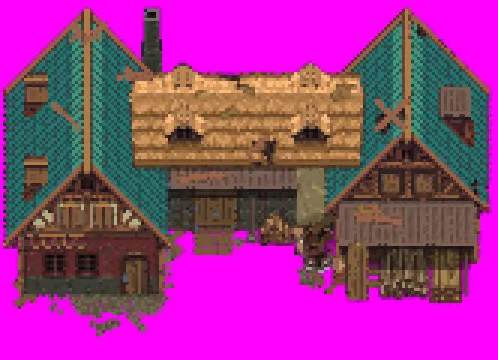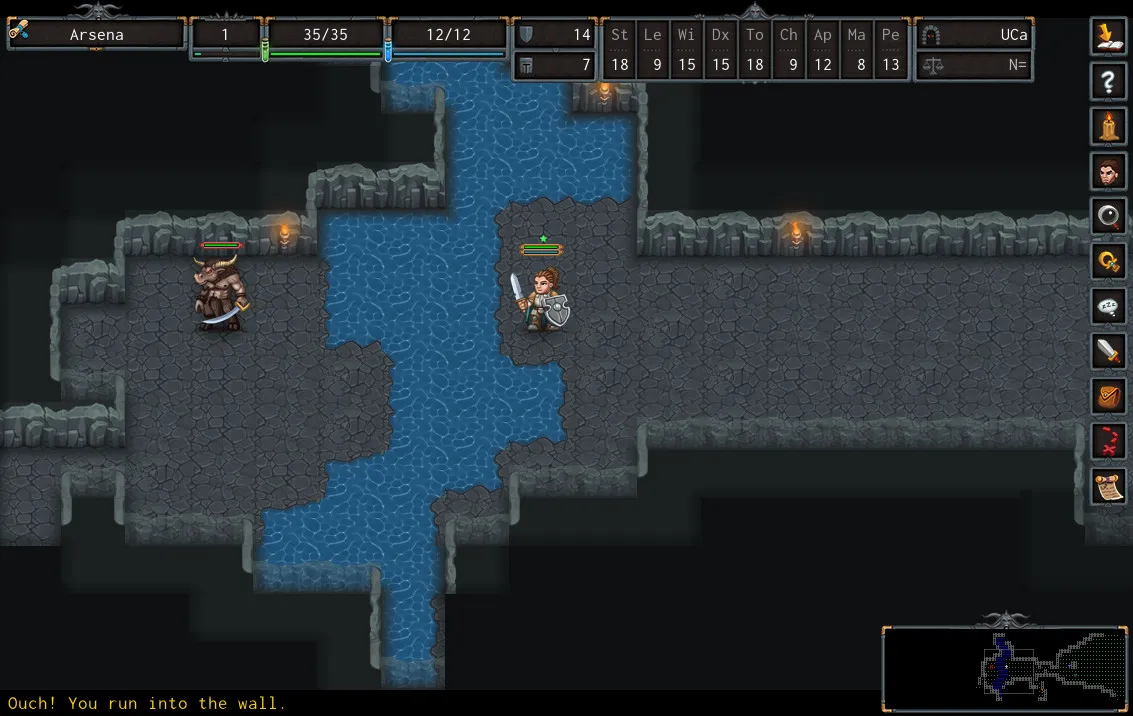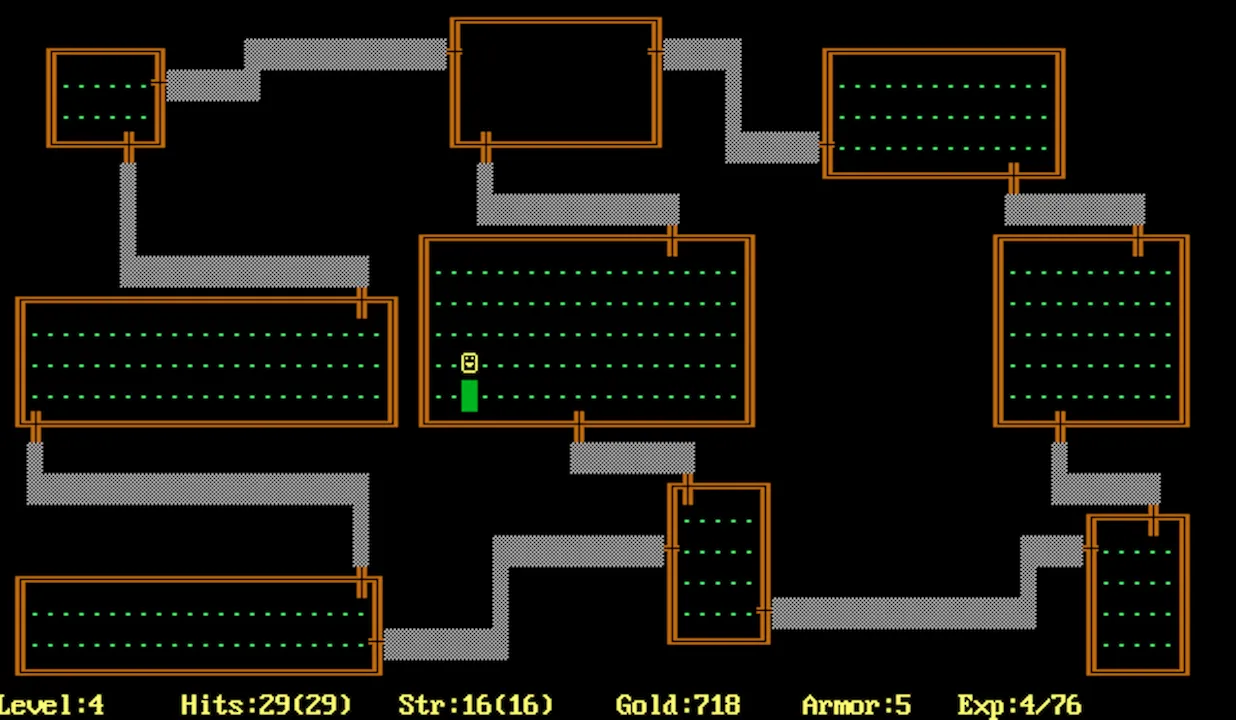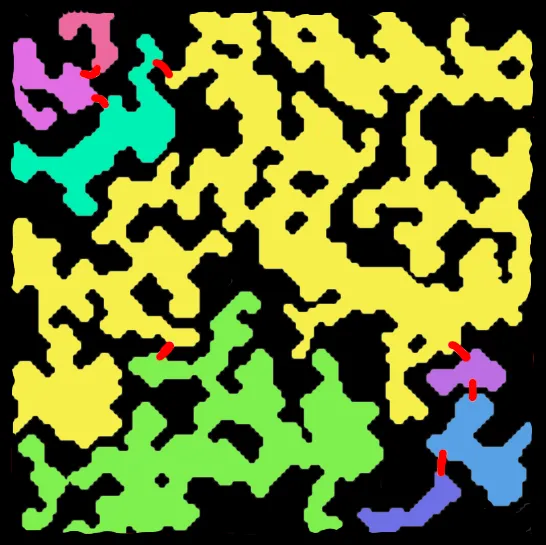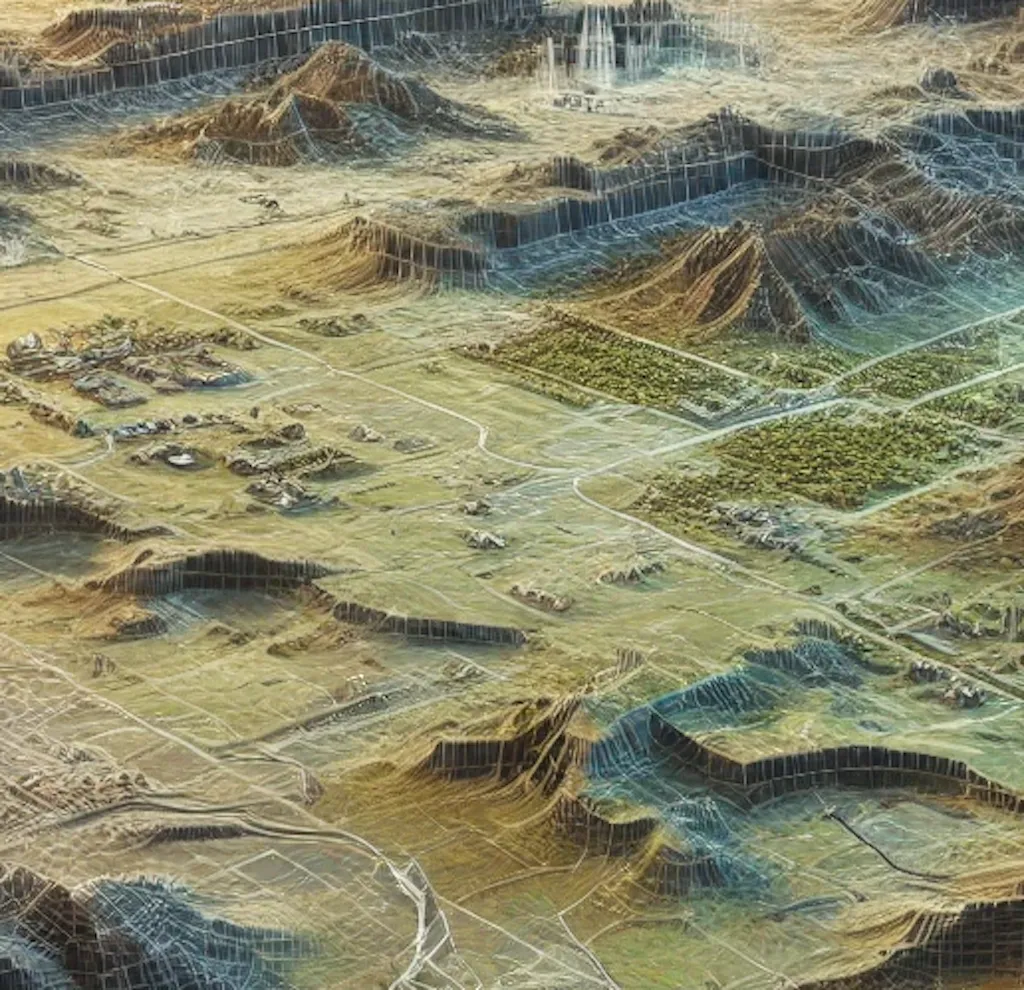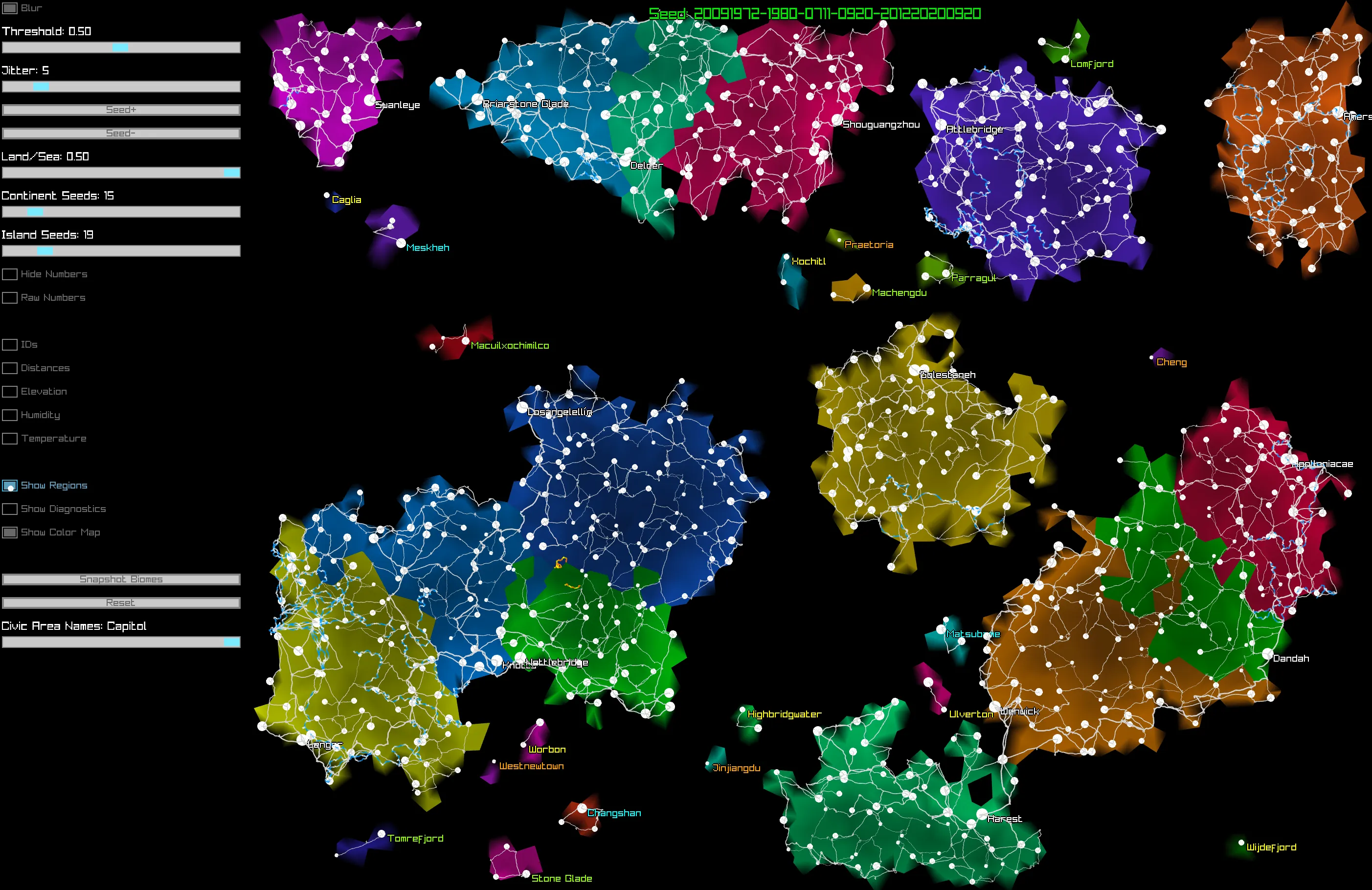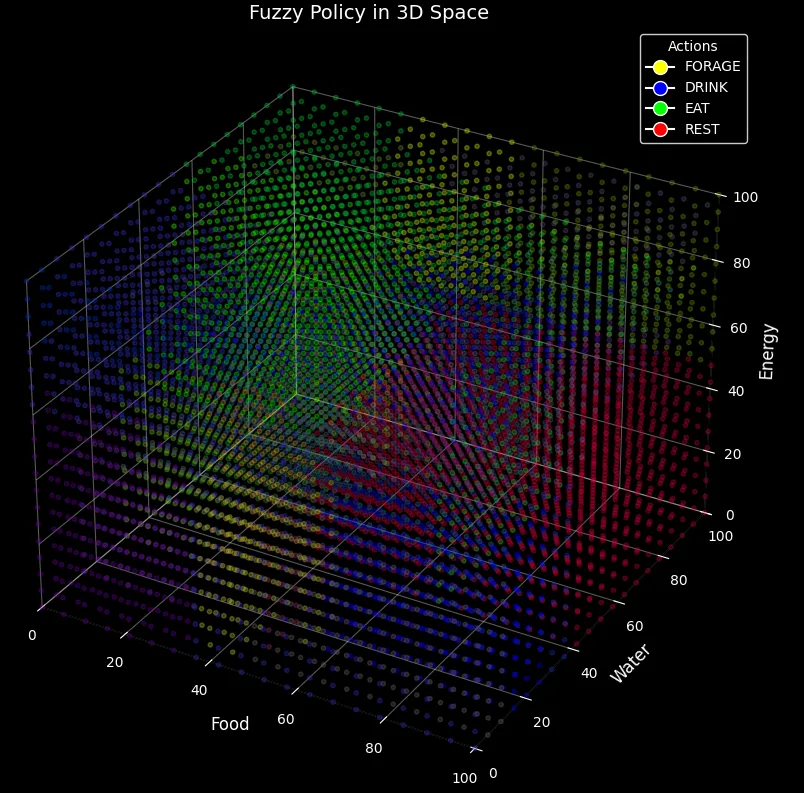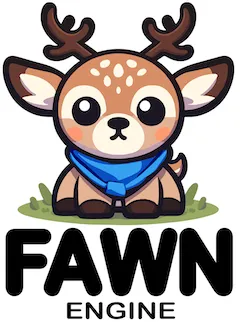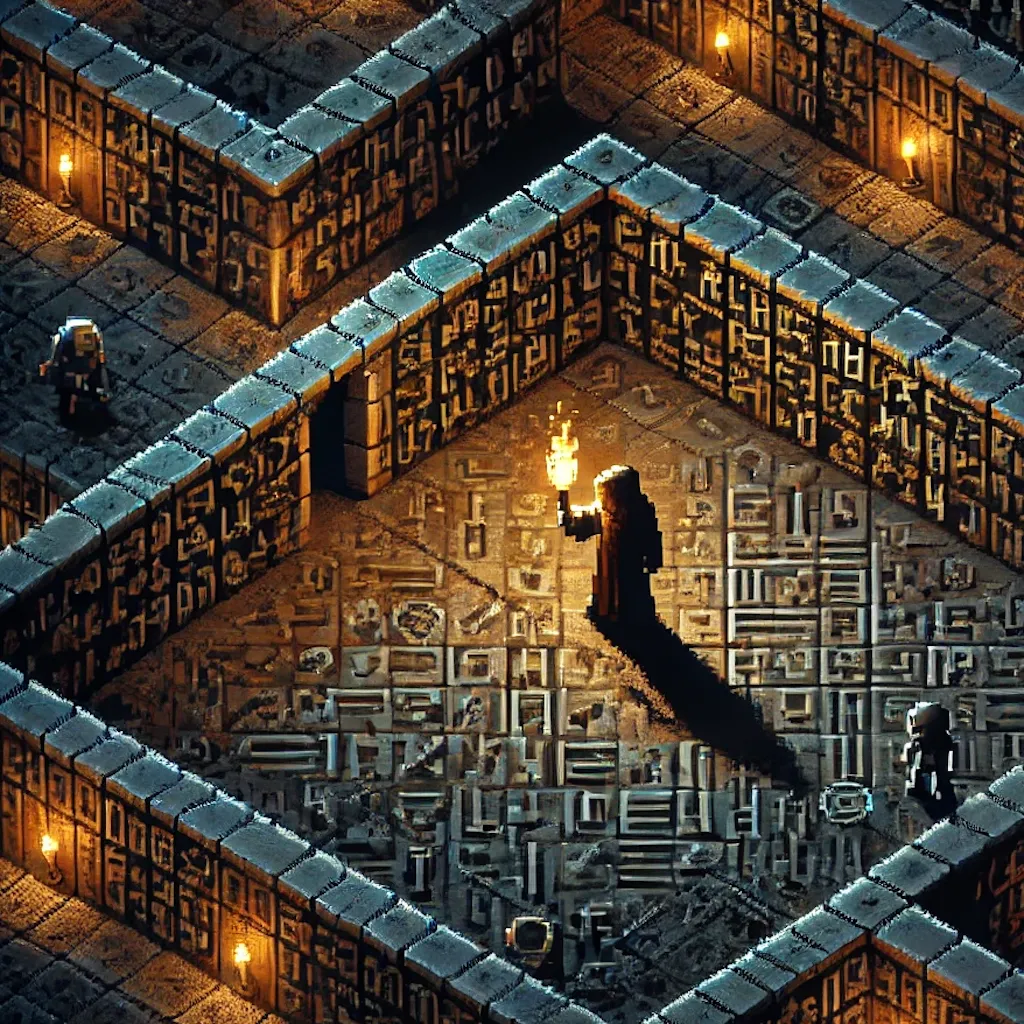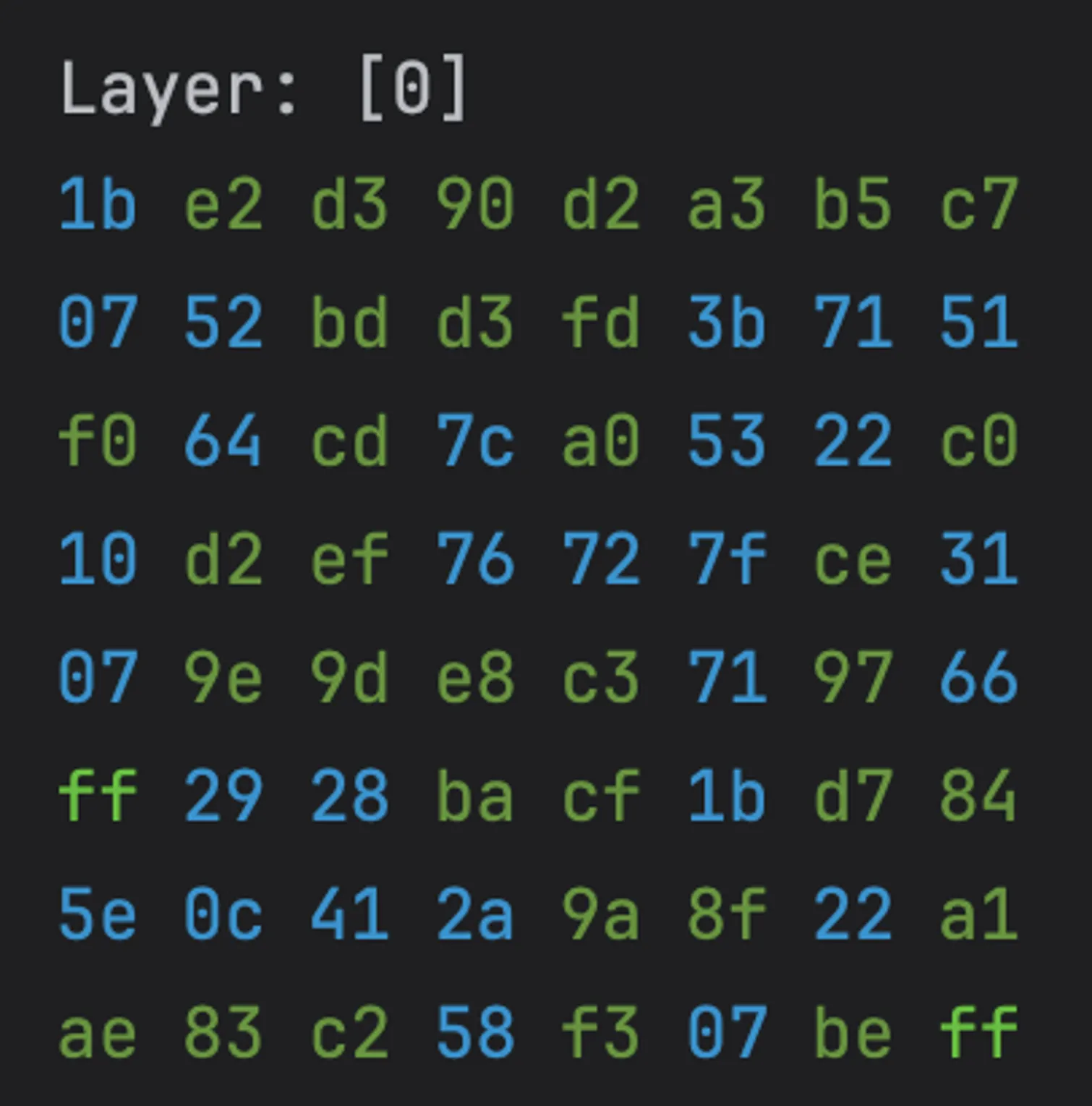Posts grouped by Tag
#algorithms
Building a Zèrtz AI involves developing a Monte Carlo Tree Search (MCTS) engine that navigates the game's complex mechanics, including mandatory captures and dynamic board topology. The implementation utilizes a Rust backend for performance, Python for orchestration, and Panda3D for rendering, with the code available on GitHub. Key challenges addressed include handling forced capture sequences and adapting to the changing adjacency graph as the board shrinks. Future enhancements may focus on optimizing the search algorithm and exploring the implications of hexagonal symmetry on the game's strategic depth.
This post explains an adaptive approach for downscaling pixel art while preserving detail, combining naive resampling, block-based color sampling, edge detection, and conditional replacement to produce sharper results. It’s implemented in Python with code in a GitHub repository. The approach merges standard scaling with specialized steps to handle transparency, edges, and color distribution.
#berlin-interpretation
This article introduces “The Hiive Interpretation,” a modern framework for defining roguelikes inspired by the original Berlin Interpretation. It reexamines core principles to accommodate contemporary game designs, distinguishing between traditional roguelikes, roguelites, and hybrids. Through detailed analysis and case studies of notable games, the post aims to foster clearer discussions and understanding within the roguelike community. The goal is to provide a flexible, insightful tool that respects the genre’s legacy while embracing its evolution.
This article delves into the Berlin Interpretation, a framework attempting to define the essential characteristics of Roguelike games. It discusses the criteria set forth by this interpretation and reflects on its relevance and impact on the genre. The post also critiques its limitations, exploring how modern roguelikes have evolved beyond these traditional definitions.
#board-games
Building a Zèrtz AI involves developing a Monte Carlo Tree Search (MCTS) engine that navigates the game's complex mechanics, including mandatory captures and dynamic board topology. The implementation utilizes a Rust backend for performance, Python for orchestration, and Panda3D for rendering, with the code available on GitHub. Key challenges addressed include handling forced capture sequences and adapting to the changing adjacency graph as the board shrinks. Future enhancements may focus on optimizing the search algorithm and exploring the implications of hexagonal symmetry on the game's strategic depth.
#c-sharp
A deep dive into using cellular automata for procedural content generation, exploring discrete and continuous CA frameworks, custom scripting language features, visual examples, and post-processing techniques for game development. The discussion also touches on the challenges of transitioning a custom CA scripting language from C# to Rust and explores potential enhancements, such as convolution kernels and flexible rule definitions. Future improvements focus on integrating multiple CA-based techniques to generate seamless, expansive procedural worlds.
This development log provides an overview of a tile map management system, detailing its architecture and functionality. It serves as a continuation of previous discussions, offering insights into the system’s design and implementation. The post explores how chunk-based procedural generation enables efficient scaling, ensuring large maps can be dynamically expanded while maintaining performance. It also delves into caching strategies, storage handling, and dependency resolution, illustrating how layers build upon one another to generate new terrain progressively. The discussion highlights how these optimizations contribute to a seamless and scalable world-generation framework.
This entry offers background information pertinent to upcoming development discussions, setting the stage for more in-depth technical explorations in future posts. It provides insight into the project’s initial implementation, early design decisions, and the challenges encountered along the way. This foundation will help contextualize the transition to Rust and the refinements made during the process.
#domain-specific-language
A deep dive into using cellular automata for procedural content generation, exploring discrete and continuous CA frameworks, custom scripting language features, visual examples, and post-processing techniques for game development. The discussion also touches on the challenges of transitioning a custom CA scripting language from C# to Rust and explores potential enhancements, such as convolution kernels and flexible rule definitions. Future improvements focus on integrating multiple CA-based techniques to generate seamless, expansive procedural worlds.
#experiment-1
This post kicks off a series of experiments by focusing on the first attempt to use Large Language Models (LLMs) to generate NPC behavior policies in a gridworld environment centered on survival tasks. It explores whether LLMs can efficiently create adaptive and complex strategies that might outperform traditional reinforcement learning in certain cases. Through this initial test, the post evaluates the potential of LLMs to drive intelligent, responsive NPC behavior that could transform gameplay dynamics in future applications.
#function-approximation
This post kicks off a series of experiments by focusing on the first attempt to use Large Language Models (LLMs) to generate NPC behavior policies in a gridworld environment centered on survival tasks. It explores whether LLMs can efficiently create adaptive and complex strategies that might outperform traditional reinforcement learning in certain cases. Through this initial test, the post evaluates the potential of LLMs to drive intelligent, responsive NPC behavior that could transform gameplay dynamics in future applications.
#game-ai
Building a Zèrtz AI involves developing a Monte Carlo Tree Search (MCTS) engine that navigates the game's complex mechanics, including mandatory captures and dynamic board topology. The implementation utilizes a Rust backend for performance, Python for orchestration, and Panda3D for rendering, with the code available on GitHub. Key challenges addressed include handling forced capture sequences and adapting to the changing adjacency graph as the board shrinks. Future enhancements may focus on optimizing the search algorithm and exploring the implications of hexagonal symmetry on the game's strategic depth.
This post kicks off a series of experiments by focusing on the first attempt to use Large Language Models (LLMs) to generate NPC behavior policies in a gridworld environment centered on survival tasks. It explores whether LLMs can efficiently create adaptive and complex strategies that might outperform traditional reinforcement learning in certain cases. Through this initial test, the post evaluates the potential of LLMs to drive intelligent, responsive NPC behavior that could transform gameplay dynamics in future applications.
#game-engine
This article introduces the “Flexible Architecture for World-building and Narrative” engine, a project aimed at integrating artificial intelligence and machine learning into game design to create procedurally generated experiences that feel handcrafted. It discusses the motivation behind the project and its intended goals, exploring how procedural generation can be enhanced to create more engaging, structured gameplay. The article also touches on the challenges of balancing randomness with meaningful design and how this engine seeks to bridge that gap.
#image-processing
This post explains an adaptive approach for downscaling pixel art while preserving detail, combining naive resampling, block-based color sampling, edge detection, and conditional replacement to produce sharper results. It’s implemented in Python with code in a GitHub repository. The approach merges standard scaling with specialized steps to handle transparency, edges, and color distribution.
#large-language-model
This post kicks off a series of experiments by focusing on the first attempt to use Large Language Models (LLMs) to generate NPC behavior policies in a gridworld environment centered on survival tasks. It explores whether LLMs can efficiently create adaptive and complex strategies that might outperform traditional reinforcement learning in certain cases. Through this initial test, the post evaluates the potential of LLMs to drive intelligent, responsive NPC behavior that could transform gameplay dynamics in future applications.
#maze-generation
A practical exploration of adapting Shaun LeBron’s Pac-Man maze generation algorithm for a lightweight tower defense game. The post outlines the process of implementing LeBron’s tetromino-based maze generation approach in Python, with adjustments made to suit specific gameplay and aesthetic requirements. It discusses the challenges of generating symmetrical, pathable mazes and introduces a segmentation strategy for pathfinding that balances visual clarity with algorithmic efficiency. This entry marks the beginning of a series documenting the development of a maze-centric game designed to support a broader, yet-to-be-announced project.
#mcts
Building a Zèrtz AI involves developing a Monte Carlo Tree Search (MCTS) engine that navigates the game's complex mechanics, including mandatory captures and dynamic board topology. The implementation utilizes a Rust backend for performance, Python for orchestration, and Panda3D for rendering, with the code available on GitHub. Key challenges addressed include handling forced capture sequences and adapting to the changing adjacency graph as the board shrinks. Future enhancements may focus on optimizing the search algorithm and exploring the implications of hexagonal symmetry on the game's strategic depth.
#musings
This article introduces “The Hiive Interpretation,” a modern framework for defining roguelikes inspired by the original Berlin Interpretation. It reexamines core principles to accommodate contemporary game designs, distinguishing between traditional roguelikes, roguelites, and hybrids. Through detailed analysis and case studies of notable games, the post aims to foster clearer discussions and understanding within the roguelike community. The goal is to provide a flexible, insightful tool that respects the genre’s legacy while embracing its evolution.
This article delves into the Berlin Interpretation, a framework attempting to define the essential characteristics of Roguelike games. It discusses the criteria set forth by this interpretation and reflects on its relevance and impact on the genre. The post also critiques its limitations, exploring how modern roguelikes have evolved beyond these traditional definitions.
This article introduces the “Flexible Architecture for World-building and Narrative” engine, a project aimed at integrating artificial intelligence and machine learning into game design to create procedurally generated experiences that feel handcrafted. It discusses the motivation behind the project and its intended goals, exploring how procedural generation can be enhanced to create more engaging, structured gameplay. The article also touches on the challenges of balancing randomness with meaningful design and how this engine seeks to bridge that gap.
This post reflects on a personal gaming journey, from childhood PC titles like Oregon Trail and Carmen Sandiego to an unexpected first encounter with traditional roguelikes. Unlike narrative-driven RPGs, roguelikes prioritize mechanics over story, presenting a challenge for players drawn to rich lore and character arcs. Through experiences with Hack, Slash, Loot and Legends of Yore, this exploration highlights the genre’s strengths and limitations—ultimately questioning how roguelike elements could blend with deeper storytelling to create a more immersive experience.
#npc-behavior
This post kicks off a series of experiments by focusing on the first attempt to use Large Language Models (LLMs) to generate NPC behavior policies in a gridworld environment centered on survival tasks. It explores whether LLMs can efficiently create adaptive and complex strategies that might outperform traditional reinforcement learning in certain cases. Through this initial test, the post evaluates the potential of LLMs to drive intelligent, responsive NPC behavior that could transform gameplay dynamics in future applications.
#pacman-like
A practical exploration of adapting Shaun LeBron’s Pac-Man maze generation algorithm for a lightweight tower defense game. The post outlines the process of implementing LeBron’s tetromino-based maze generation approach in Python, with adjustments made to suit specific gameplay and aesthetic requirements. It discusses the challenges of generating symmetrical, pathable mazes and introduces a segmentation strategy for pathfinding that balances visual clarity with algorithmic efficiency. This entry marks the beginning of a series documenting the development of a maze-centric game designed to support a broader, yet-to-be-announced project.
#pixel-art
A practical exploration of adapting Shaun LeBron’s Pac-Man maze generation algorithm for a lightweight tower defense game. The post outlines the process of implementing LeBron’s tetromino-based maze generation approach in Python, with adjustments made to suit specific gameplay and aesthetic requirements. It discusses the challenges of generating symmetrical, pathable mazes and introduces a segmentation strategy for pathfinding that balances visual clarity with algorithmic efficiency. This entry marks the beginning of a series documenting the development of a maze-centric game designed to support a broader, yet-to-be-announced project.
This post explains an adaptive approach for downscaling pixel art while preserving detail, combining naive resampling, block-based color sampling, edge detection, and conditional replacement to produce sharper results. It’s implemented in Python with code in a GitHub repository. The approach merges standard scaling with specialized steps to handle transparency, edges, and color distribution.
#policy-based-learning
This post kicks off a series of experiments by focusing on the first attempt to use Large Language Models (LLMs) to generate NPC behavior policies in a gridworld environment centered on survival tasks. It explores whether LLMs can efficiently create adaptive and complex strategies that might outperform traditional reinforcement learning in certain cases. Through this initial test, the post evaluates the potential of LLMs to drive intelligent, responsive NPC behavior that could transform gameplay dynamics in future applications.
#python
Building a Zèrtz AI involves developing a Monte Carlo Tree Search (MCTS) engine that navigates the game's complex mechanics, including mandatory captures and dynamic board topology. The implementation utilizes a Rust backend for performance, Python for orchestration, and Panda3D for rendering, with the code available on GitHub. Key challenges addressed include handling forced capture sequences and adapting to the changing adjacency graph as the board shrinks. Future enhancements may focus on optimizing the search algorithm and exploring the implications of hexagonal symmetry on the game's strategic depth.
A practical exploration of adapting Shaun LeBron’s Pac-Man maze generation algorithm for a lightweight tower defense game. The post outlines the process of implementing LeBron’s tetromino-based maze generation approach in Python, with adjustments made to suit specific gameplay and aesthetic requirements. It discusses the challenges of generating symmetrical, pathable mazes and introduces a segmentation strategy for pathfinding that balances visual clarity with algorithmic efficiency. This entry marks the beginning of a series documenting the development of a maze-centric game designed to support a broader, yet-to-be-announced project.
This post explains an adaptive approach for downscaling pixel art while preserving detail, combining naive resampling, block-based color sampling, edge detection, and conditional replacement to produce sharper results. It’s implemented in Python with code in a GitHub repository. The approach merges standard scaling with specialized steps to handle transparency, edges, and color distribution.
#reinforcement-learning
This post kicks off a series of experiments by focusing on the first attempt to use Large Language Models (LLMs) to generate NPC behavior policies in a gridworld environment centered on survival tasks. It explores whether LLMs can efficiently create adaptive and complex strategies that might outperform traditional reinforcement learning in certain cases. Through this initial test, the post evaluates the potential of LLMs to drive intelligent, responsive NPC behavior that could transform gameplay dynamics in future applications.
#rust
Building a Zèrtz AI involves developing a Monte Carlo Tree Search (MCTS) engine that navigates the game's complex mechanics, including mandatory captures and dynamic board topology. The implementation utilizes a Rust backend for performance, Python for orchestration, and Panda3D for rendering, with the code available on GitHub. Key challenges addressed include handling forced capture sequences and adapting to the changing adjacency graph as the board shrinks. Future enhancements may focus on optimizing the search algorithm and exploring the implications of hexagonal symmetry on the game's strategic depth.
A deep dive into using cellular automata for procedural content generation, exploring discrete and continuous CA frameworks, custom scripting language features, visual examples, and post-processing techniques for game development. The discussion also touches on the challenges of transitioning a custom CA scripting language from C# to Rust and explores potential enhancements, such as convolution kernels and flexible rule definitions. Future improvements focus on integrating multiple CA-based techniques to generate seamless, expansive procedural worlds.
This post explores the process of landscape generation using Rust, focusing on a seeded expansion algorithm to ensure consistent chunk generation. It provides a detailed look into the methods employed for procedural terrain creation. It provides a detailed look into the methods employed for procedural terrain creation, explaining how chunk-based map scaling allows for large, memory-efficient worlds. The discussion covers core implementation details, including deterministic tile selection, performance considerations, and procedural variation techniques. Additionally, the post outlines how randomness is introduced in a controlled manner to make landscape generation feel organic while maintaining consistency.
This entry offers background information pertinent to upcoming development discussions, setting the stage for more in-depth technical explorations in future posts. It provides insight into the project’s initial implementation, early design decisions, and the challenges encountered along the way. This foundation will help contextualize the transition to Rust and the refinements made during the process.
#sekrit-project-1
A practical exploration of adapting Shaun LeBron’s Pac-Man maze generation algorithm for a lightweight tower defense game. The post outlines the process of implementing LeBron’s tetromino-based maze generation approach in Python, with adjustments made to suit specific gameplay and aesthetic requirements. It discusses the challenges of generating symmetrical, pathable mazes and introduces a segmentation strategy for pathfinding that balances visual clarity with algorithmic efficiency. This entry marks the beginning of a series documenting the development of a maze-centric game designed to support a broader, yet-to-be-announced project.
#terrain-generation
A deep dive into using cellular automata for procedural content generation, exploring discrete and continuous CA frameworks, custom scripting language features, visual examples, and post-processing techniques for game development. The discussion also touches on the challenges of transitioning a custom CA scripting language from C# to Rust and explores potential enhancements, such as convolution kernels and flexible rule definitions. Future improvements focus on integrating multiple CA-based techniques to generate seamless, expansive procedural worlds.
This development log provides an overview of a tile map management system, detailing its architecture and functionality. It serves as a continuation of previous discussions, offering insights into the system’s design and implementation. The post explores how chunk-based procedural generation enables efficient scaling, ensuring large maps can be dynamically expanded while maintaining performance. It also delves into caching strategies, storage handling, and dependency resolution, illustrating how layers build upon one another to generate new terrain progressively. The discussion highlights how these optimizations contribute to a seamless and scalable world-generation framework.
This post explores the process of landscape generation using Rust, focusing on a seeded expansion algorithm to ensure consistent chunk generation. It provides a detailed look into the methods employed for procedural terrain creation. It provides a detailed look into the methods employed for procedural terrain creation, explaining how chunk-based map scaling allows for large, memory-efficient worlds. The discussion covers core implementation details, including deterministic tile selection, performance considerations, and procedural variation techniques. Additionally, the post outlines how randomness is introduced in a controlled manner to make landscape generation feel organic while maintaining consistency.
This entry offers background information pertinent to upcoming development discussions, setting the stage for more in-depth technical explorations in future posts. It provides insight into the project’s initial implementation, early design decisions, and the challenges encountered along the way. This foundation will help contextualize the transition to Rust and the refinements made during the process.
#world-building
This development log provides an overview of a tile map management system, detailing its architecture and functionality. It serves as a continuation of previous discussions, offering insights into the system’s design and implementation. The post explores how chunk-based procedural generation enables efficient scaling, ensuring large maps can be dynamically expanded while maintaining performance. It also delves into caching strategies, storage handling, and dependency resolution, illustrating how layers build upon one another to generate new terrain progressively. The discussion highlights how these optimizations contribute to a seamless and scalable world-generation framework.
This post explores the process of landscape generation using Rust, focusing on a seeded expansion algorithm to ensure consistent chunk generation. It provides a detailed look into the methods employed for procedural terrain creation. It provides a detailed look into the methods employed for procedural terrain creation, explaining how chunk-based map scaling allows for large, memory-efficient worlds. The discussion covers core implementation details, including deterministic tile selection, performance considerations, and procedural variation techniques. Additionally, the post outlines how randomness is introduced in a controlled manner to make landscape generation feel organic while maintaining consistency.
This entry offers background information pertinent to upcoming development discussions, setting the stage for more in-depth technical explorations in future posts. It provides insight into the project’s initial implementation, early design decisions, and the challenges encountered along the way. This foundation will help contextualize the transition to Rust and the refinements made during the process.
#zertz
Building a Zèrtz AI involves developing a Monte Carlo Tree Search (MCTS) engine that navigates the game's complex mechanics, including mandatory captures and dynamic board topology. The implementation utilizes a Rust backend for performance, Python for orchestration, and Panda3D for rendering, with the code available on GitHub. Key challenges addressed include handling forced capture sequences and adapting to the changing adjacency graph as the board shrinks. Future enhancements may focus on optimizing the search algorithm and exploring the implications of hexagonal symmetry on the game's strategic depth.
